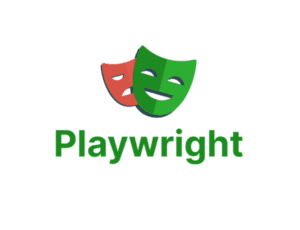Monthly Newsletter | Sep 2021 | Issue 114
Featuring
- Unlock the power of API for a breakthrough in your Lending business!
- Lending simplified using Chatbots, your AI-powered virtual assistant!
- In the News
- Major Events
- Key Stats
Focus On


Unlock the power of API for a breakthrough in your Lending business!
With the pandemic catalyzing the need for digital lending and the percentage of bad loans increasing, API has become more indispensable than ever before in the Lending Industry! API (Application Programming Interface), the technology under the hood which connects one or more applications to communicate and exchange the data in real-time, has a big role to play in the global financial sector.
The growing importance of API in Lending
With API connectivity Lenders can connect their applications in a secure, accurate and faster manner. It enables the lender to acquire critical information that is essential for decision making. APIs create a bridge between multiple platforms and data sets, using third-party applications and thus enable rapid decision making possible. When the data is validated through relevant sources, decision- making becomes accurate, and the lender is better positioned to assess loan requests from a whole array of customers.
API has a big role in providing efficient and safe lending!
1) API allows lenders to leverage data to take better advantage of it.
2) APIs allow the lender to delve deeper into the metrics.
3) APIs allow business owners to maintain full control of the data supplied and stored.
4) API helps Lenders in automating the tasks and offers opportunities to improvise the service offerings.
5) APIs do not store any data within them and are therefore 100% secure and safe.
6) API enables access to additional data, which in turn helps to create a more sophisticated formula for analyzing creditworthiness
7) API enables faster, efficient, and cost-effective loan processing
How Insight Consultants can help you?
Organizations need to ensure services offered to the customer are intact and meet the needs. The right API solution can unlock the great potential to create new products, services, and collaborations.
Our solution:
1. End-to-end lending process automation in one solution
2. Increase stability and security with easy-to-use version control and management tools
3. Preconfigured integrations with solutions needed to run a lending business
4. Monitor performance, security, and uptime of your integrations
5. Integrate with the credit bureau of your choice and automatically pull the data for decisioning.
Use your existing application process with Insight Consultants AI-powered Credit Decision API and take your business to the next level.
We are here to help you wherever you are in your API journey.
Get in touch with our expert team.
Keep Reading
Lending simplified using Chatbots, your AI-powered virtual assistant
“According to The Financial Brand, AI can save the banking industry more than USD 1 trillion by 2030. And the rise of bots is playing a key role here”.
Technology is shattering a long-held need to talk to someone before you make a financial decision or before you apply for a loan. However, as financial products become more standardized, most people want instant responses to their queries instead of waiting to talk to someone.
This is where Chatbots come in!
A Chatbot is an effective technology solution that can be deployed to provide basic customer support by itself, support human interactions with detailed facts, highlight and drive sales opportunities, or streamline internal processes.
Chatbots redefining the Lending experience
Customer service makes or breaks a business. Poor customer service is one of the main reasons firms lose customers. Chat bots can help Lenders improve customer support, automate routine tasks, and thereby attract new customers.
Let’s examine a few ways in which AI-equipped chatbots can make the lending process more gratifying.
1. Customer queries: Bots help the customers to reduce the time taken to find the right information. They can respond to multiple customers at the same time. Engage with customers consistently and never get angry or tired
2. Omnichannel Experience: Provides the same experience irrespective of the channel: mobile, web, etc.
3. Automated loan assistance: Assist customers in their loan inquiries, loan origination, monthly statements, payment reminders, etc.
4. Application for selected financial products: Through simple instructions, chatbots allow you to apply for a selected loan, insurance, and even Credit Cards, directly from the messenger platform.
5. Conversational UX: Conversational UX is capable to humanize a bot. It mimics a human conversation through natural language-based technology, such as chat, text, and voice.
How can Insight Consultants help you with an advanced Chatbot?
At Insight Consultants, we drive digital transformation for lenders across the globe. Every financial service provider is unique. Choosing the right automation technologies for your business can be both complicated and confusing. That’s where we can help. We create bots that respond to your target customers’ profiles and specific business processes. We can give you the guidance and advice you need to choose the right chatbot for your business and, in the process, help you achieve your principal marketing goals
By bringing together cutting-edge technology and a deep understanding of the lending industry, we can help you engage your customers with a conversational bot over any channel and device, in any language, anywhere, and anytime.
Get insights to stay ahead in lending industry
Insights delivered monthly !


Lendingclub, fueled by surge in loans, posts surprise profit
A bigger-than-expected jump in loan originations helped LendingClub turn a profit in its first full quarter after acquiring a bank, surprising both company executives and analysts.
The San Francisco company is still expecting to report slight full-year losses partly due to merger-related costs earlier this year. But executives reported a profit of $9.37 million in the second quarter, a big swing from a $47.1 million loss the prior quarter, and said they expect to continue the momentum in the second half of the year.
Transaction fees jumped 17% at the company, which helps connect customers looking for loans to individuals or institutional investors, such as banks, through its online marketplace.
Loan originations soared 16% to $3.35 billion in the third quarter, with total revenue rising 11% to $204.9 million.
“Our first full quarter operating a digital bank was the most profitable quarter in LendingClub’s history,” said Scott Sanborn, LendingClub’s CEO. “This is the beginning of a dramatically enhanced earnings trajectory for the business. Our transformation is fueled by our competitive advantages, which include our 3.5 million-plus members, deep data capabilities, marketplace model as well as our more efficient operating platform. Our earnings are being bolstered by our bank, which is generating a new stream of recurring net interest income that is only beginning to contribute to our bottom line results.”


Freddie Mac to lower down payment hurdles in November
Freddie Mac on Nov. 15 will lower down payment requirements on primary residences for borrowers with incomes up to 80% of the area median who are taking out mortgages secured by 2-4 unit properties. Additionally, Freddie will ease guidelines for manufactured housing lending.
For 2-4 unit homes, maximum loan-to-value ratios have been limited to 85% unless second lien products that have been difficult to obtain in the private market were taken out, in which case the total LTV limit has been 95%. The change increases the limit to as high as 105% for borrowers getting down payment assistance from a subsidized source such as a state housing agency while ensuring that, at a minimum, borrowers must contribute funds equal to at least 3% of the loan amount. Borrowers without subsidized down payment assistance will have a maximum 95% LTV after the new requirements go into effect.
The pending changes underwriting by Freddie’s Home Possible Program are aimed at the fulfillment of the recently announced Biden administration. Affordable Housing Goals, Owned house, 2-4 units, aimed at building wealth at low cost. Manufactured house More achievable.
Daniel Jacobs, Managing Director of TruLoan Mortgage in Charlotte, North Carolina, said: , Lenders operating in the Southeast and Midwest. “It allows people to build wealth by leveraging units that generate additional income when buying a home.”
Freddie is also used in manufactured homes with less than a year of seasoning to give borrowers more access to the relatively low interest rate loans that government-sponsored companies offer to loans transferred as real estate. Change the LTV calculation.
This change will allow the LTV to be determined using the valuations of both the land and the newly built home, even if the loan does not yet have a year of seasoning. Currently, before the end of the year, we are downgrading using a complex formula that takes into account the cost of land acquisition.
“This makes it much easier for people seeking manufactured homes to raise traditional funding,” Jacobs said.
The new underwriting guidelines are valid for loans settled after November 15th.


Online Lender Kabbage shopping for buyers
FinTech Kabbage could be seeking a sale, and in doing so, could look to garner up to $1 billion, according to sources quoted by Barron’s.
The business did well during the pandemic, outperforming some larger lenders, and the sale could have bids within the month, the sources said.
The potential buyers that have emerged thus far have consisted of financial institutions and tech bidders, though no private equity investors have expressed interest yet, according to the sources.
Kabbage had no comment. The company, founded in 2009 by chief executive Rob Frohwen, ex-chairman Marc Gorlin and President Kathryn Petralia as a way to provide easy funding for small businesses, has aimed to provide amounts up to $250,000, along with underwriting and service loans. The business was an early innovator in the field determining the creditworthiness of small business clients.
In the past few years, the company has gone through numerous purchases and acquisitions. Kabbage has invested over $1 billion in technology, allowing it to automate loan applications, according to Barron’s. It has also invested in numerous financial services offerings for smaller businesses in fields like payments, for settling funds faster or analytics and insights.
Kabbage had to furlough a significant number of its almost 600 employees and quit handling new loans in response to the onset of the coronavirus pandemic in March.
However, the company was buoyed in April when it was approved to provide loans for the Paycheck Protection Program (PPP), when it partnered with 135 community banks and gave loans totaling over $6.5 billion to 270,000 applicants.
However, that bump could just be a one-time thing, according to bankers who say the boost may not be sustained since Kabbage hasn’t resumed handling non-PPP loans.
But Kabbage has been trying to keep up with the economy, offering new accounts for small to medium-sized businesses (SMBs), with no costly opening fees and the flexibility to begin an account at any stage of the business.


Credit Unions asks SBA to keep PPP simple
The U.S. Small Business Administration set up the Paycheck Protection Program quickly, starting to move money to help businesses survive and avoid layoffs in April 2020, just a month after COVID-19 was declared a pandemic. About half of Paycheck Protection Program loans await forgiveness from the SBA.
It worked with banks, credit unions and others that originated the loans that were designed to be forgiven if borrowers met the requirements.
The last loans were originated in May, and credit unions are now trying to help members get SBA forgiveness of the loans.
Self-Help FCU was the third-largest credit union originator of PPP loans, based on SBA records through May 10. It originated 2,616 PPP loans worth $244.3 million, which supported 26,172 jobs from April 2020 to early May 10. As of June 30, it still held 1,862 PPP loans worth $143 million, down from 2,036 loans worth $187 million on March 31.
One new wrinkle in the program is the SBA’s introduction early this month of a process that allows businesses to apply for forgiveness directly through an SBA online portal for loans under $150,000, rather than through their lender.
Tracy Ward, director of the SBA 504 Loan Program of the Self-Help Ventures Fund, a sister agency to Self-Help Federal Credit Union of Durham said, said the SBA’s new Direct Forgiveness Portal is a great option for borrowers if their lenders don’t have an online system in place, or if their lenders are failing to serve them in other ways.
SBA’s new Direct Forgiveness Portal is a great option for borrowers if their lenders don’t have an online system in place, or if their lenders are failing to serve them in other ways.
However, Self-Help FCU and many other credit unions have already invested cash and hundreds of hours setting up systems to make the forgiveness process simple and painless for borrowers.
A CU Times analysis of loan-level data from the SBA through May 10 found 965 credit unions participated in the program, originating $15.1 billion from 361,980 PPP loans to help support 199,598 jobs. The analysis found credit unions accounted for only about 2% of the value of PPP loans, but they tended to serve smaller businesses that were often turned away by big banks. The average PPP loan through credit unions was $41,687, compared with $70,436 for all lenders.
Events
Fintech and InsurTech Live
12-14 Oct 2021, London, Virtual
Key Stats
Central Bank Interest Rates and Current Libor Rates
| GBP Libor (overnight) | Interest
(09-07-2021) | Central Banks | Interest Rates |
| Euro Libor | -0.59300% | American Interest rate (FED) | 0.25% |
| USD Libor | 0.07325% | Australian Interest rate (RBA) | 0.10% |
| CHF Libor | -0.78480% | British Interest Rate (BoE) | 0.10% |
| JPY Libor | -0.09133% | Canadian Interest Rate (BOC) | 0.25% |
| GBP Libor | 0.04075 % | Japanese Interest Rate (BoJ) | -0.10% |








